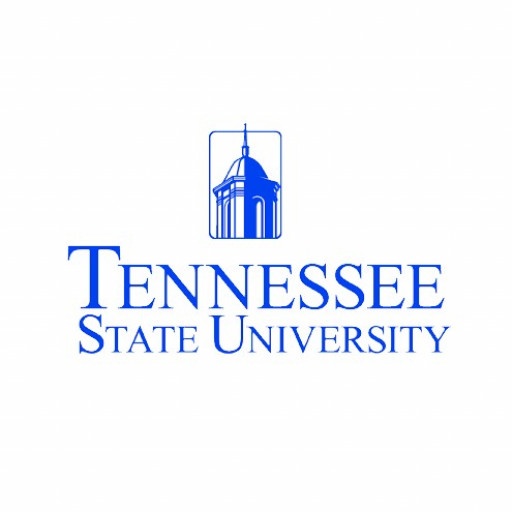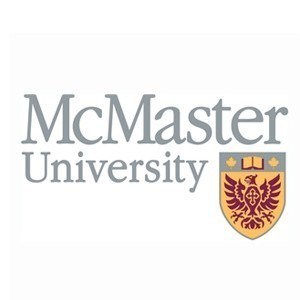The Bachelor’s degree program in Human and Molecular Biology at Saarland University offers students a comprehensive foundational education in the fundamental principles of biology with a particular focus on human physiology, molecular processes, genetics, and biomedical research. This program is designed to equip students with the theoretical knowledge and practical skills necessary for understanding the complex mechanisms that underpin human health and disease. Throughout the course of study, students explore a wide range of topics including cell biology, molecular genetics, biochemistry, microbiology, human anatomy, and physiology, as well as modern techniques in molecular biology and bioinformatics. The curriculum emphasizes experimental laboratory work, fostering hands-on experience and scientific analytical skills that are crucial for future careers in research, healthcare, or biotechnological industries.
Students are encouraged to develop critical thinking and problem-solving abilities through project work, laboratory exercises, and interactive seminars. The program also offers modules that cover current topics such as personalized medicine, molecular diagnostics, and innovative therapeutic approaches, reflecting ongoing advancements in the biomedical sciences. Saarland University provides access to state-of-the-art laboratories and research facilities, enabling students to engage directly with cutting-edge research tools and techniques. Additionally, the program emphasizes interdisciplinary collaboration, integrating knowledge from chemistry, physics, and computer science to reflect the interconnected nature of modern biological research.
Throughout their studies, students have the opportunity to undertake practical placements and internships, gaining valuable insights into laboratory practice, clinical applications, and industrial processes. The program prepares graduates for diverse professional pathways, including biomedical research, clinical diagnostics, pharmaceutical development, and further academic study through master's or doctoral programs. Graduates will be equipped with a solid scientific background and practical competencies vital for contributing to innovations in medicine and biotechnology. The Bachelor in Human and Molecular Biology at Saarland University underscores the importance of scientific rigor, ethical considerations, and continuous learning in the pursuit of advancing health sciences and improving human well-being.
The Bachelor's degree program in Human and Molecular Biology at Saarland University offers students a comprehensive education in the fundamental principles of biological sciences, with a particular focus on the molecular mechanisms that underlie human health and disease. The program is designed to provide students with a solid theoretical foundation combined with practical experience in modern laboratory techniques, enabling them to understand and investigate complex biological systems at the molecular and cellular levels.
Throughout the curriculum, students explore a wide range of topics including cell biology, genetics, biochemistry, molecular biology, physiology, and biomedical sciences. Emphasizing interdisciplinary learning, the program integrates knowledge from different fields to foster a holistic understanding of human biology and its applications in medicine and research. The coursework includes both rigorous classroom instruction and hands-on laboratory exercises, ensuring students develop essential skills in experimental design, data analysis, and scientific communication.
An important aspect of the program is its focus on current advances in molecular biology, personalized medicine, and biotechnology. Students are encouraged to engage in research projects and internships that allow them to apply their knowledge in real-world settings, collaborate with professionals, and contribute to innovative scientific developments. The program also emphasizes ethical considerations and responsible conduct in research, preparing graduates for careers in academia, industry, healthcare, or further postgraduate studies.
Saarland University supports students with modern teaching facilities, well-equipped laboratories, and experienced faculty members dedicated to mentoring and guiding students throughout their academic journey. Upon completion of the Bachelor’s program, graduates are equipped with the knowledge, skills, and qualifications necessary to pursue advanced studies or careers in various biomedical and biotechnological fields, contributing to advancements in human health and science.
The Bachelor of Science in Human and Molecular Biology at Saarland University requires prospective students to possess a solid foundation in the natural sciences, including biology, chemistry, and mathematics. Applicants typically need to demonstrate successful completion of secondary education equivalent to the German Hochschulzugangsberechtigung (e.g., high school diploma), with emphasis on science subjects. The program is designed to provide students with comprehensive knowledge in cell biology, genetics, molecular biology, biochemistry, and human physiology, along with practical skills in laboratory techniques and experimental procedures. Enrollment prerequisites include proof of English language proficiency, such as IELTS or TOEFL scores, to ensure students can engage with the course material effectively. The curriculum spans core courses in introductory biology, chemistry, physics, and mathematics, followed by specialized modules in molecular biology, human genetics, neurobiology, and biochemistry. Students are expected to complete laboratory internships and practical training to gain hands-on experience. Additionally, the program encourages interdisciplinary learning and research projects, fostering theoretical understanding and practical competence. To graduate, students must pass all prescribed examinations, including written exams, presentations, and practical assessments, and fulfill a certain number of ECTS credits, typically around 180 credits over six semesters. The program aims to prepare graduates for careers in research, healthcare, biotech industries, and further academic studies such as master's or doctoral programs. Advanced knowledge in molecular techniques, bioinformatics, and human health makes graduates competitive in the scientific community. The university also offers support services, including academic advising, language courses, and access to laboratories and research centers. Overall, the program emphasizes an integrated approach to understanding human biology at the molecular level, promoting scientific inquiry, and preparing students for professional roles that contribute to health sciences and biomedical research.
Financing for the Human and Molecular Biology program at Saarland University is primarily structured through various funding options available to domestic and international students. Tuition fees for the program are generally covered by the university for undergraduate students from Germany and the European Union, supported by state funding. However, there may be semester fees that include administrative costs, student services, and the semester ticket for public transportation, which students are required to pay each semester. These fees typically amount to a few hundred euros per semester.
For international students or those seeking financial assistance, Saarland University offers a range of scholarship opportunities, including merit-based scholarships and need-based grants. These are provided through both university initiatives and external organizations. Applicants can apply through the university’s scholarship office, which evaluates candidates based on academic performance, financial need, and motivation.
Students are also encouraged to explore part-time employment opportunities, which are available within the university and in the surrounding region. The university’s job portal lists suitable positions for students that comply with visa regulations for international students. Additionally, students may receive financial support from government programs or student loan schemes available in Germany, such as BAföG (Bundesausbildungsförderungsgesetz), which offers financial assistance to students in need, contingent upon specific eligibility criteria.
Furthermore, research internships and projects within the program may provide stipends or funding opportunities, especially for graduate students pursuing specialization or research-oriented tracks. Students are advised to consult the program’s official website and the university’s financial aid office for detailed and updated information about specific funding sources, application procedures, and eligibility requirements.
In summary, financing the Human and Molecular Biology studies at Saarland University involves a combination of university fees, scholarships, part-time work, government support programs, and possibly research funding for graduate students. Prospective students should plan accordingly and seek tailored advice from the university’s financial aid services to ensure they are aware of all available options to support their educational pursuits.
The Bachelor's degree program in Human and Molecular Biology at Saarland University offers students a comprehensive education in the fundamental aspects of biology with a focus on human biology and molecular processes. The program is designed to provide a solid foundation in biological sciences, including genetics, cell biology, biochemistry, and molecular biology, while also addressing the medical and health-related applications of these disciplines. Students will gain practical laboratory skills through hands-on experiments and research projects, preparing them for careers in research, healthcare, biotechnology, or further academic study.
The curriculum includes core modules in molecular genetics, human anatomy, physiology, and biochemistry, complemented by electives that allow students to explore specialized topics such as genomics, bioinformatics, or medical biotechnology. The program emphasizes interdisciplinary learning, encouraging collaboration between biology, medicine, and technology disciplines. Students are also encouraged to participate in internships, research projects, and international exchanges to broaden their practical experience and cultural understanding.
The degree program aims to cultivate not only scientific expertise but also analytical thinking, problem-solving abilities, and communication skills necessary for professional success in the biological and medical fields. Graduates will be equipped to understand complex biological systems, contribute to biomedical research, or work in governmental or private health organizations.
Saarland University supports students through modern laboratories, skilled faculty members, and career counseling services. The program is structured to ensure students develop a thorough understanding of modern molecular techniques such as PCR, gel electrophoresis, microscopy, and bioinformatics tools. Overall, the Bachelor’s in Human and Molecular Biology prepares students for a dynamic career landscape where advances in genetics, molecular medicine, and biotechnology continually shape the future of healthcare and biological sciences.










